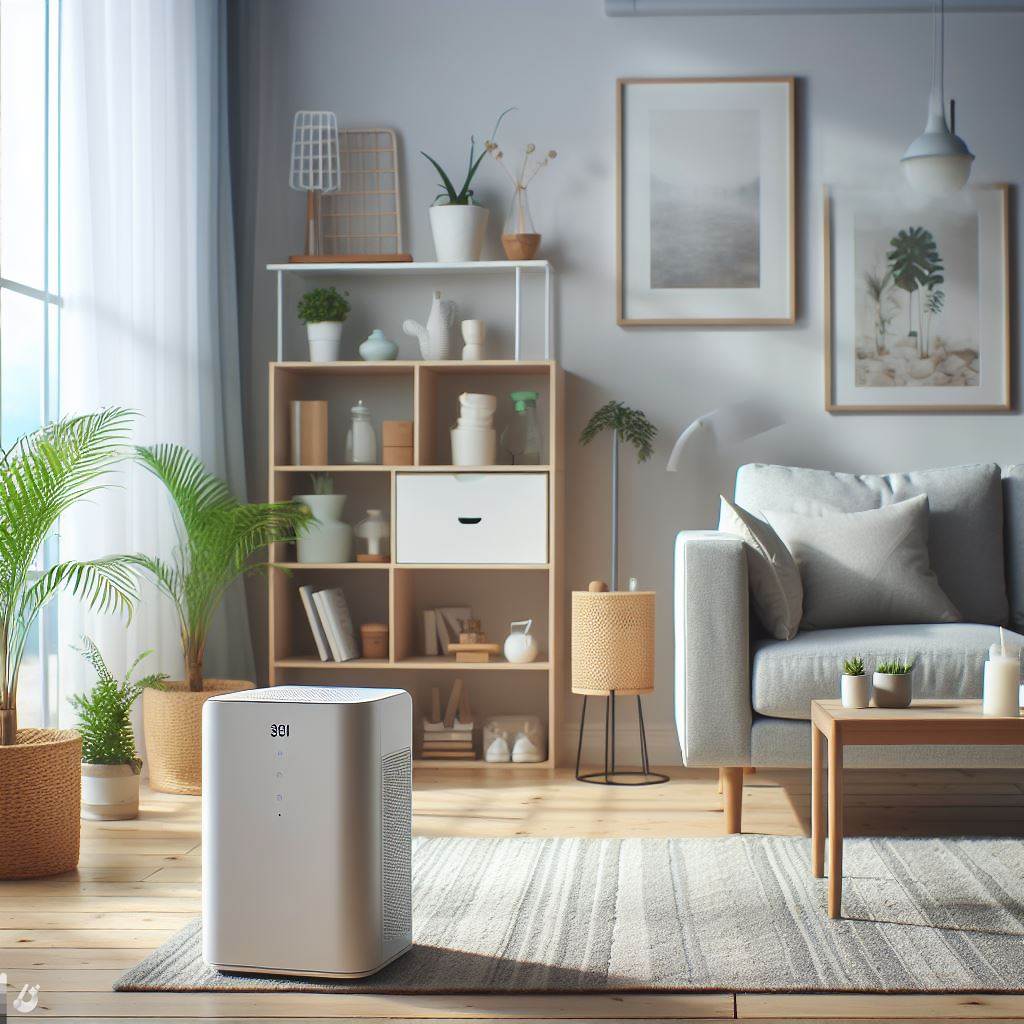Air purifiers are more than just a luxury for the home; they’re becoming a household essential, especially for those dealing with allergies, pet dander, or unpleasant odors. By filtering and cleaning the air, these devices create a healthier and more comfortable living environment, making a significant difference in your overall well-being. Let’s dive into how air purifiers work and explore the key benefits they bring to your home.
How Do Air Purifiers Work?
Air purifiers use a system of fans and filters to capture airborne particles, allergens, and pollutants. The most common type is equipped with HEPA (High-Efficiency Particulate Air) filters, which are designed to trap 99.97% of particles as small as 0.3 microns, including dust, pollen, mold spores, and pet dander. Some air purifiers also incorporate carbon filters to absorb odors and volatile organic compounds (VOCs), ensuring that the air not only feels clean but smells fresh, too.
Benefits of Air Purifiers for Your Home
- Relief from Allergies
For anyone who suffers from seasonal or year-round allergies, air purifiers can be a game-changer. Common allergens like pollen, dust mites, and mold spores float invisibly in the air and can wreak havoc on your respiratory system. By capturing these particles, air purifiers help reduce the frequency and severity of allergy symptoms such as sneezing, congestion, and itchy eyes. This is particularly beneficial during peak allergy seasons when pollen counts are high, but indoor allergens like dust and mold also pose a year-round concern.
An air purifier can provide relief by continuously filtering these triggers out of the air, allowing you to breathe more easily, sleep better, and enjoy a more comfortable indoor environment.
- Managing Pet Dander and Hair
Pet owners love their furry companions, but they may not love the dander, hair, and odors that come with them. Pet dander, in particular, is a common allergen that can irritate respiratory systems and trigger allergies, even for those who aren’t typically allergic. Air purifiers with HEPA filters are highly effective at trapping pet dander and hair, ensuring that it doesn’t circulate throughout the home and aggravate allergies.
In addition to dander, air purifiers help manage pet odors that can linger, especially in homes with multiple animals. Whether it’s the smell of wet dogs or litter boxes, an air purifier with a carbon filter can neutralize these odors, leaving your home smelling fresher and cleaner.
- Better Indoor Air Quality
Indoor air quality is often worse than many people realize. Common household pollutants like dust, cleaning chemicals, VOCs from paints and furniture, and even cooking fumes can contribute to poor air quality. Long-term exposure to these pollutants may lead to respiratory issues, headaches, or fatigue, even if you don’t suffer from specific allergies.
Air purifiers help remove these microscopic pollutants, improving the overall air quality inside your home. This is particularly important if you live in an urban area where outdoor pollution levels are higher or in a home that doesn’t have good natural ventilation. Breathing cleaner air can lead to better health outcomes, especially for those with asthma or other respiratory conditions.
- Elimination of Unpleasant Odors
We’ve all experienced moments when the air in the house just feels stale or unpleasant. Whether it’s from cooking, smoke, pets, or strong chemicals, bad smells can linger in the air long after their source is gone. Air purifiers equipped with activated carbon filters are designed to absorb and neutralize these odors, leaving your home smelling fresh.
Instead of masking odors with air fresheners or candles, which can add even more chemicals to the air, an air purifier works by actually removing the particles causing the smell. This makes it a more effective and healthier solution for maintaining a fresh-smelling home.
- Better Sleep
Breathing cleaner air can contribute to a better night’s sleep. Poor indoor air quality, allergens, and pollutants can contribute to restlessness and even disrupt sleep patterns by causing congestion, sneezing, or coughing. Air purifiers remove irritants from the air, helping to create a more peaceful and healthy sleep environment.
For those with sleep apnea or respiratory issues, having an air purifier in the bedroom may help ease symptoms, making it easier to breathe freely and comfortably throughout the night.
- Reducing Airborne Germs
Some air purifiers are equipped with UV-C light or ionization technology to kill airborne bacteria and viruses. This can be especially helpful during cold and flu season, or in households with children, where germs can spread quickly. While not a replacement for good hygiene practices, an air purifier can add an extra layer of defense against the spread of illness by reducing the number of airborne pathogens.
Choosing the Right Air Purifier for Your Needs
When selecting an air purifier, consider the specific needs of your home. For those with allergies or asthma, a HEPA filter is essential. If pet odors or chemical smells are a concern, choose a model with a carbon filter. Additionally, if you’re worried about germs or viruses, consider one with UV-C light technology.
Be mindful of the size of the room you want to purify, as air purifiers come in different capacities. A unit that’s too small for the room won’t be as effective, while one that’s too large may use more energy than necessary.
Final Thoughts
Air purifiers are a valuable investment for improving the air quality in your home. Whether you’re looking to reduce allergens, manage pet dander, eliminate odors, or just enjoy a fresher, healthier space, these devices offer a range of benefits that enhance your overall comfort and well-being. With cleaner air, you can breathe easier, sleep better, and enjoy a more pleasant environment in your home every day.

